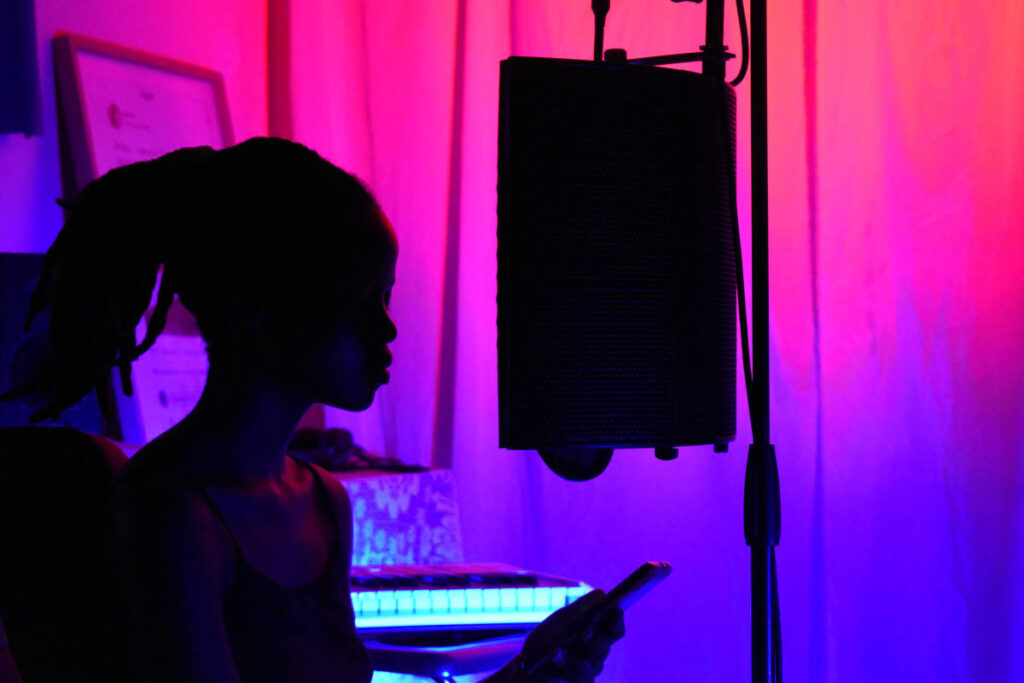The sounds of silence are now deafening on TikTok, but the artists responsible for powering its musical engines are refusing to be muted by corporate interests.
Hundreds of millions of videos are now muted on TikTok after Universal Music Group removed its songs from the app en masse in the wake of a hostile licensing dispute. The controversy has gripped both the creator economy and music industry at large and artists are now responding in droves as they grapple with the fallout.
Electronic music superstar Alison Wonderland lamented the news in a candid video message, condemning UMG for its hypocrisy after pressuring her to create TikTok videos to promote an album before muting its music.
“Last album you were trying to force me to create TikToks to promote my new songs with my new music, and now I can’t. None of the music’s up there,” she said. “I don’t understand you. This is an incredibly toxic relationship that I need to get out of and I think a lot of us need to get out of.”
“i hope you find a loophole and jump ship,” Deorro said in response. “no artist deserves that.”
MNEK also criticized UMG’s decision, characterizing it as “silly” and “greedy.” The chart-topping producer and vocalist is perhaps best known for 2020’s “Head & Heart,” a global dance hit he released in collaboration with Joel Corry.
“as an artist who used to be signed with Universal Music Group – irdk [sic] how they think this whole TikTok boycott is gonna work out…in 2024???” MNEK said. “After all this time of bullying their artists into becoming influencers, they decide to pull this?
Replying to MNEK, acclaimed singer-songwriter Lily Allen suggested a class action lawsuit for artists to reclaim the rights to their work after its eradication from TikTok, which many regard as the world’s most powerful music discovery platform. A recent study found that one in four people discover music on the app, which is expected to reach two billion users by the end of 2024.
The comments from Wonderland and MNEK mirror those made by prolific hip-hop producer Metro Boomin, who bemoaned TikTok’s tendency to render songs viral one day and forgotten the next.
“I love the creativity and appreciation the kids show for the music on TikTok but I don’t like the forced pandering from artists and labels that results in these lifeless and soulless records,” Boomin said.
UMG, the world’s largest music company, said that negotiations with TikTok collapsed after they urged the social media giant to address “three critical issues — appropriate compensation for our artists and songwriters, protecting human artists from the harmful effects of AI, and online safety for TikTok’s users.”
UMG also claimed that TikTok “attempted to bully” them into a proposed deal that would’ve paid its artists “a fraction” of the amount disbursed by other social media platforms, adding that the app comprises roughly 1% of its total revenue. The two organizations’ existing agreement expired on January 31st, leading to the purging of songs by Taylor Swift, Drake, BTS, Olivia Rodrigo and many more contemporary music superstars.
TikTok, which is owned by the Chinese tech company ByteDance, slammed UMG’s “false narrative and rhetoric” and accused them of putting “their own greed above the interests of their artists and songwriters.”
Read the latest statement from UMG below, per Billboard.
“Our agreements with TikTok have expired because of TikTok’s unwillingness to appropriately compensate artists and songwriters, protect human artists from the harmful effects of AI, and address online safety issues for TikTok’s users (more on that here).
In fact, TikTok’s own statement perfectly sums up its woefully outdated view: Even though TikTok (formerly Musical.ly) has built one of the world’s largest and most valuable social media platforms off the backs of artists and songwriters, TikTok still argues that artists should be grateful for the ‘free promotion’ and that music companies are ‘greedy’ for expecting them to simply compensate artists and songwriters appropriately, and on similar levels as other social media platforms currently do.
TikTok didn’t even attempt to address the other issues we raised regarding harmful AI and platform safety. It’s no surprise that artist rights advocates are speaking out in support of our action.”

